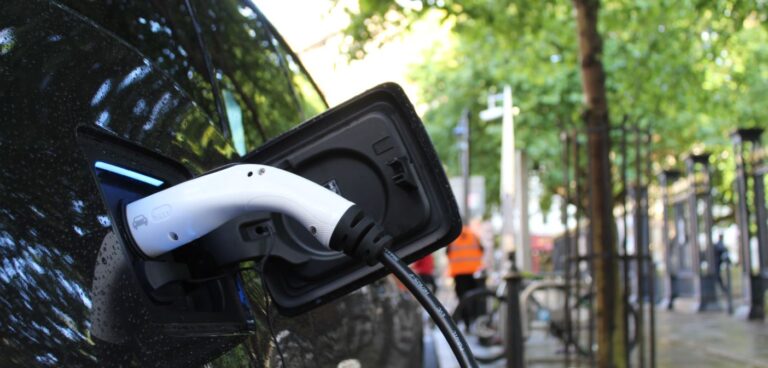Council leaders have warned of a ‘chasm’ between cities and rural areas in the availability of EV charging points, as new figures reveal that drivers in county areas have one charging point every 16 miles, compared to one for every mile in London.
New analysis from the County Councils Network (CCN) shows that there are more publicly available charging points in London (7,865) compared to the entirety of England’s counties (7,781), which are home to almost half of the country’s population.
As a result, the CCN is concerned people will be put off switching from petrol and diesel cars, with only 35% of England’s EVs registered in county areas. The network also stressed the need for good access to charging points for the county areas that see large influxes of visitors, such as Devon, Cumbria, and Lincolnshire.
Government advisors on the Climate Change Committee said that charging points should be ‘widely available’ by 2025, but only 21,925 have been installed in England as of last month. Council leaders in rural areas are concerned the government is “a long way off the committee’s 150,000 target and places could be left behind the cities”, comparing it to the broadband roll-out.
County leaders also stressed it is vital that the government’s net zero strategy focuses on improving publicly available EV charging points, and funding is ramped up to support on-street residential chargers.
Cllr Sam Corcoran, climate change spokesperson for the County Councils Network, said: “As we move towards a zero-emission future, most households should be able to charge their car up at home. But many people will not have this an option so having a good amount public charging points near their homes will be vital, as they will be for tourists.
“Having a car is a necessity rather than a luxury in many county areas owing to a lack of public transport options, but we cannot incentivise people to switch to electric vehicles if the infrastructure is not readily available to support them. There is already a chasm between county areas and England’s biggest cities in charging points, and this must be addressed urgently to stop rural areas falling behind.
“County areas have seen emissions fall the slowest compared to the rest of England and switching to electric vehicles will help our climate change ambitions. County leaders are ready to support the government in hitting net zero, but we need a new focus and investment to address the lack of electric vehicle infrastructure in our areas presently.”





